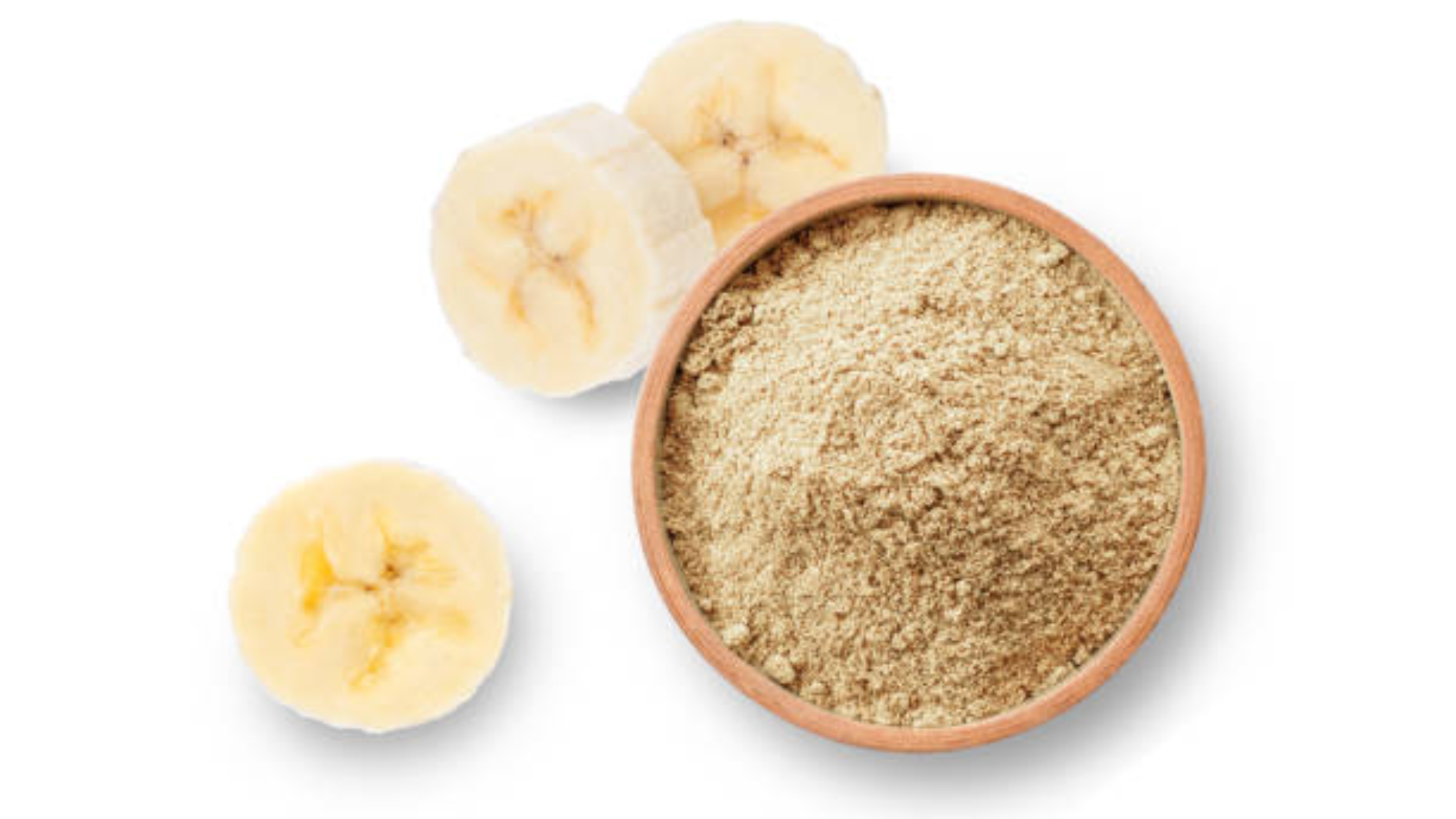Let’s explore banana powder benefits for health and why it’s becoming more popular in diets focused on health. Banana powder stands out as a nutritious and versatile option among health foods. To make this powder, people dry ripe bananas and grind them into a fine powder. This process keeps the fruit’s natural taste while giving it a longer shelf life and many uses. Are you into fitness or on the hunt for natural health supplements?
Banana Powder Benefits for Health
1. Full of Nutrients
Banana powder benefits is packed with essential vitamins and minerals, which has an influence on its many health benefits. It’s rich in potassium, which helps your heart and keeps your blood pressure steady. It also contains vitamin C, which gives your immune system a boost and makes your skin look healthy and radiant. On top of that, it contains vitamin B6, which your brain needs to grow and make energy. It also has magnesium, which keeps your bones strong and helps your muscles relax. These nutrient-rich features make banana powder a handy and adaptable add-on to any diet.
2. Rich in Fiber
Banana powder benefits is packed with dietary fiber, which helps keep your gut in good shape and stops you from getting backed up. Because it’s high in fiber, it makes you feel stuffed, so it’s great for keeping your weight in check. Tossing some banana powder into your meals or drinks is a simple natural way to get your digestion running.
3. Gives You a Natural Energy Boost
We all know bananas have natural sugars like fructose, glucose, and sucrose that give you a quick energy boost. Banana powder keeps these properties, which makes it great to take before or after you work out. It’s perfect for athletes or busy people who need steady energy all day long.
4. Supports Gut Health
The banana powder’s resistant starch works as a powerful prebiotic. It keeps the microbiome in check and feeds the good bacteria in your gut. This balance is crucial to improve digestion, help your body absorb nutrients better, and beef up your overall immunity. If you add banana powder to what you eat, it can help your gut health.
Get more info click here
A Surprising Source of Protein?
While bananas don’t contain much protein, banana powder can be combined with protein-rich ingredients like whey or plant-based proteins to create a balanced supplement. Many health companies have started to add proteins to banana powder turning it into a high-protein superfood. This enhanced version is useful to boost overall metabolic health, build muscle, and speed up recovery after workouts.
How to Incorporate Banana Powder Benefits into Your Diet
Smoothies: To make a nutrient-rich drink, mix a spoonful of banana powder with milk or yogurt and your favorite fruits.
Baking: Use it in pancakes, muffins, or energy bars as a natural sweetener.
Baby Food: It works well in homemade baby food due to its natural sweetness and nutritional value.
Protein Shakes: To create a flavorful high-protein shake, mix banana powder with a protein supplement.
Sprinkle on Cereals: To boost taste and nutrients, add a small amount of banana powder to your cereals or morning oats.
Who Should Use Banana Powder?
Banana powder benefits works for people of all ages such as:
Fitness buffs: It helps muscles recover and boosts energy for a long time.
Kids and older folks: It packs a lot of nutrients and doesn’t upset the stomach.
Health nuts: They can use it to make food taste better and sweeter.
People with tummy troubles: It has prebiotics and fiber that are good for digestion.


